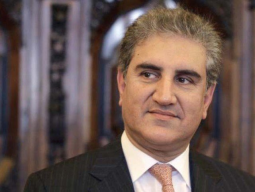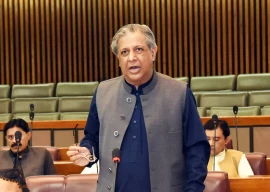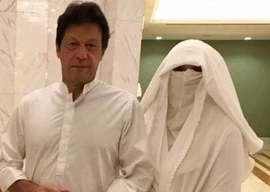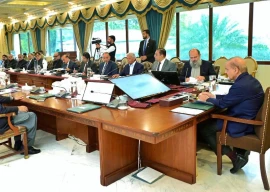
Pakistan plans to open the Kartarpur Corridor on the 550th birth anniversary of Baba Guru Nanak on November 11 and has urged New Delhi to show flexibility after the third round of talks on the matter yesterday. Pakistan has kept the corridor project insulated from the recent tensions with India over the illegal revocation of occupied Kashmir’s special status, subsequent lockdown in the disputed state and intensified ceasefire violations by India at the Line of Control. The project also remained unaffected by the escalation between the two counties in the wake of the Pulwama attack in February this year.
Pakistan has taken a number of steps in response to India’s illegal annexation of occupied Kashmir last month, including the downgrading of diplomatic ties and suspension of trade and rail traffic. However, talks on the Kartarpur Corridor that is meant to facilitate India’s minority Sikh community to visit Gurdwara Darbar Sahib in Pakistan have continued. The first two rounds of talks between the two sides have resulted in an agreement on visa-free travel for Sikh pilgrims from India; keeping the corridor open all year round; allowing 5,000 pilgrims into Pakistan every day and providing them Langar and Prasad; building a bridge over the Budhi Ravi channel; and opening a direct line of communication between India’s BSF and Pakistan’s Rangers. The third round of talks held on the Indian side of the Wagah-Attari border deliberated on the rules and regulations related to the entry of pilgrims.
The initiative to build the corridor had come from Islamabad, and the continuation of the talks with New Delhi despite the prevailing hostile environment in the context of Kashmir is a testimony to Pakistan’s commitment to peace in the region. Pakistan’s seriousness about talks is reflective of its belief that the Kartarpur Corridor initiative has the potential to become a template for cross-border exchanges based on faith and to extend the momentum to other areas, given the undeniable role religion and religious beliefs are playing in intrastate conflicts and aspects of international affairs in the 21st century.
Published in The Express Tribune, September 5th, 2019.
Like Opinion & Editorial on Facebook, follow @ETOpEd on Twitter to receive all updates on all our daily pieces.




























































COMMENTS
Comments are moderated and generally will be posted if they are on-topic and not abusive.
For more information, please see our Comments FAQ